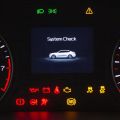6 Most Common Signs That Your Vehicle Needs a Tune-Up

Most people haven’t acquired the habit of taking their vehicle in for routine maintenance. If you’re like those people, then you may experience numerous car problems without even realizing it.
Continue reading to discover the five most common signs that your vehicle requires a tune-up.
1. Decreases gas mileage
Gas mileage is difficult to track unless your vehicle has a special gauge for it. Your car’s gas fuel economy depends on various interconnected factors. These include the effectiveness of your emission system, proper work of your engine, and even the way your vehicle drives. For instance, wheel alignment problems can lead to reduced fuel mileage. Because bad gas mileage can indicate numerous problems, it’s essential to take your car in for a tune-up whenever there’s a slight decline in fuel efficiency.
2. Hard starting engine
Trouble starting your car can indicate several problems, all of which can be identified and prevented with proactive maintenance. For instance, your spark plugs can get damaged, causing your engine to misfire, affecting its performance. Replacing bad spark plugs is easy and won’t cost much or take long. Your car battery can also lead to difficulty starting the engine. Vehicle batteries can die due to lack of maintenance, low air temperature, and failure of the diode bridge or voltage regulator. In that case, it needs to be replaced, which is also inexpensive. An auto tune-up will help identify these issues in time, helping you avoid struggling with the engine that won’t turn over.
3. Strange or unfamiliar sounds
Do you hear any strange or new sounds when driving your car? Some of them may be harmless. However, most of them may indicate a serious issue with your vehicle. For instance, a clinking sound may indicate that something in your car has become loose. And a squealing sound can mean that your car is running out of fluids. The proper functions of your vehicle depend on a wide range of interrelated moving parts. When one of these parts becomes damaged or loose enough to cause noise, it’s only a matter of time until you’ll face major car trouble.
4. Car pulling to one side
If you notice that your vehicle starts to pull slightly to one sight while driving, it can mean that your wheel alignment is off. Misaligned wheels can occur due to various causes including collisions, driving on off-roads, and hitting potholes or curbs. Other problems that can cause your car to pull to one side include inconsistent air pressure in your tires, tire tonicity, and worn-out part in the steering or suspension. All of these problems are typically covered in auto tune-ups, so don’t hesitate to fix your problem.
5. Reduced braking power
It’s important to pay attention to your car’s brakes. They are vital safety features that need to remain functional, responsive, and tough to be efficient. Because brakes wear gradually, it can be difficult to notice when they’ve exceeded the safety limits. You may require the extra braking capacity when you least expect it. By the time you figure out that your brakes are declining, you’ll most likely be in potential danger. Getting regular vehicle tune-up will help determine when your brakes need to be survived or replaced.
6. Stalling
If your engine stops working once, it may not seem like a major issue. However, imagine that your vehicle stalls on the highway or in a middle of a busy intersection. This can lead to a potentially lethal car accident. Stalling can occur due to various causes including failed spark plugs, clogged up oil filter, dead battery, or a dirty air filter. All of these issues can be prevented and repaired with regular tune-ups.
Other articles and publications:
Articles and publications of other companies:
- +1 (646) 270-9836
- Long Island City
- grantny.com













